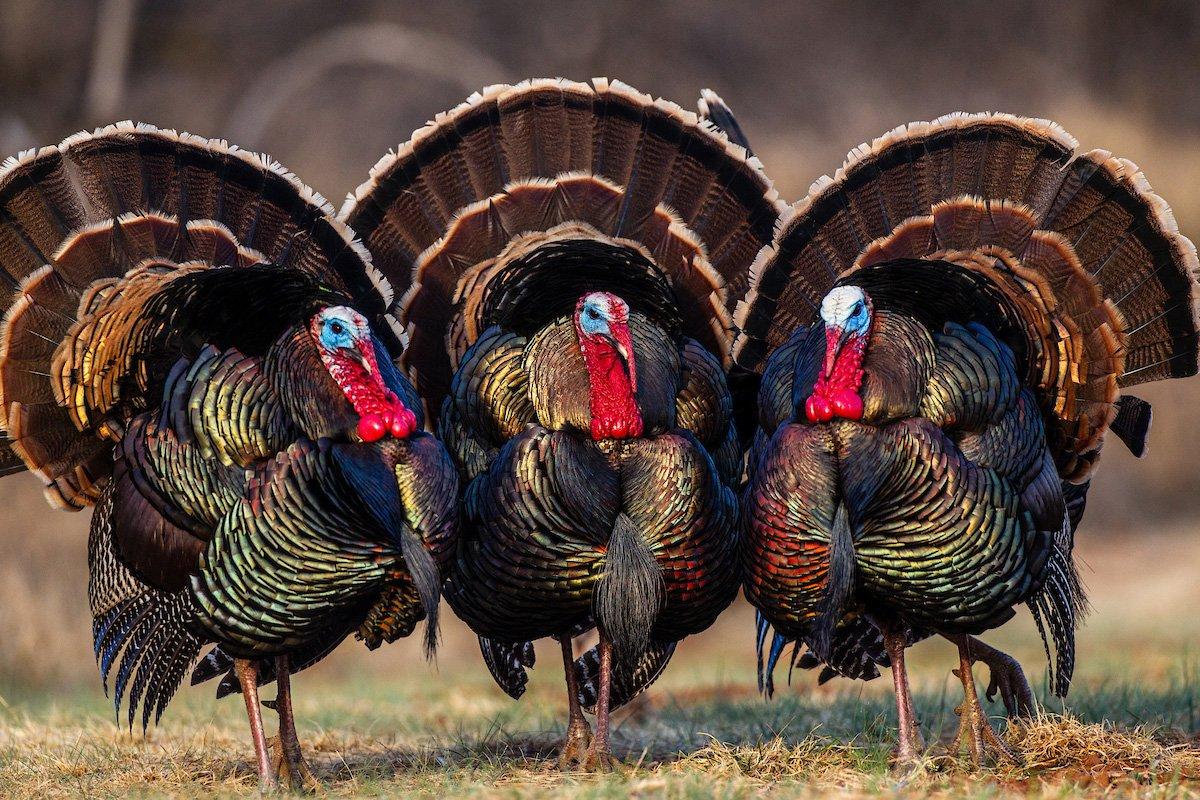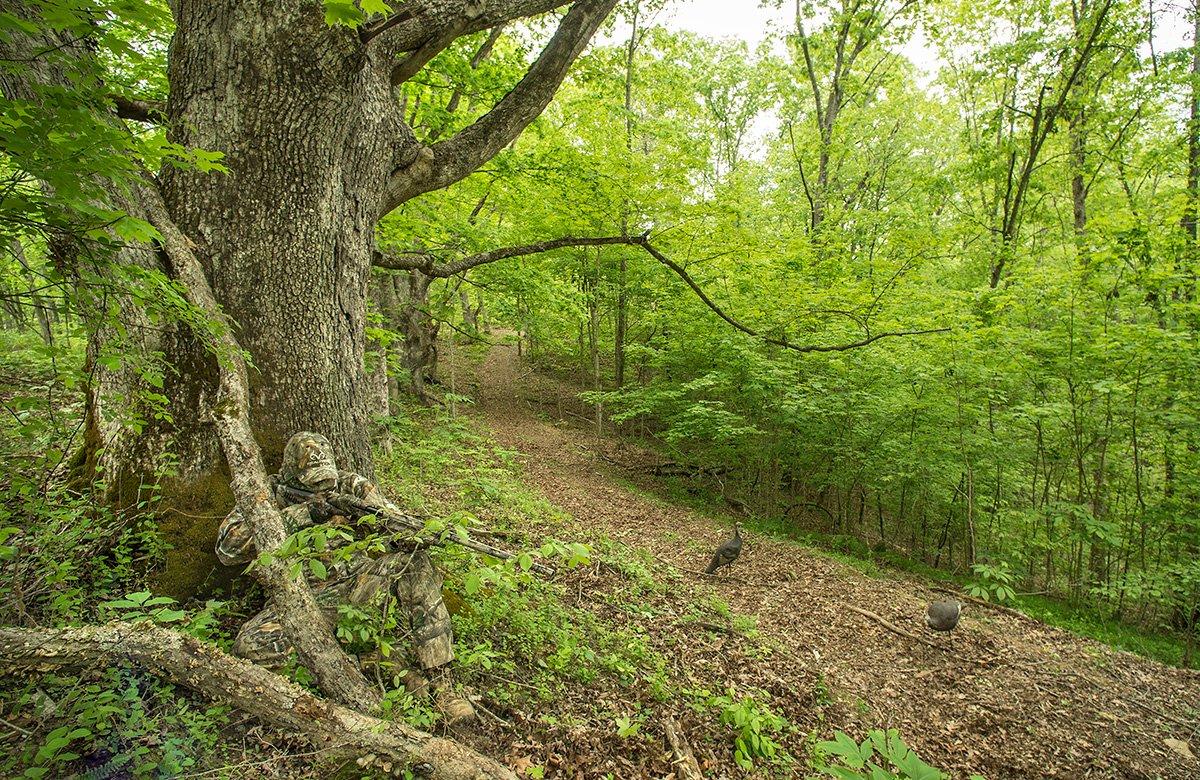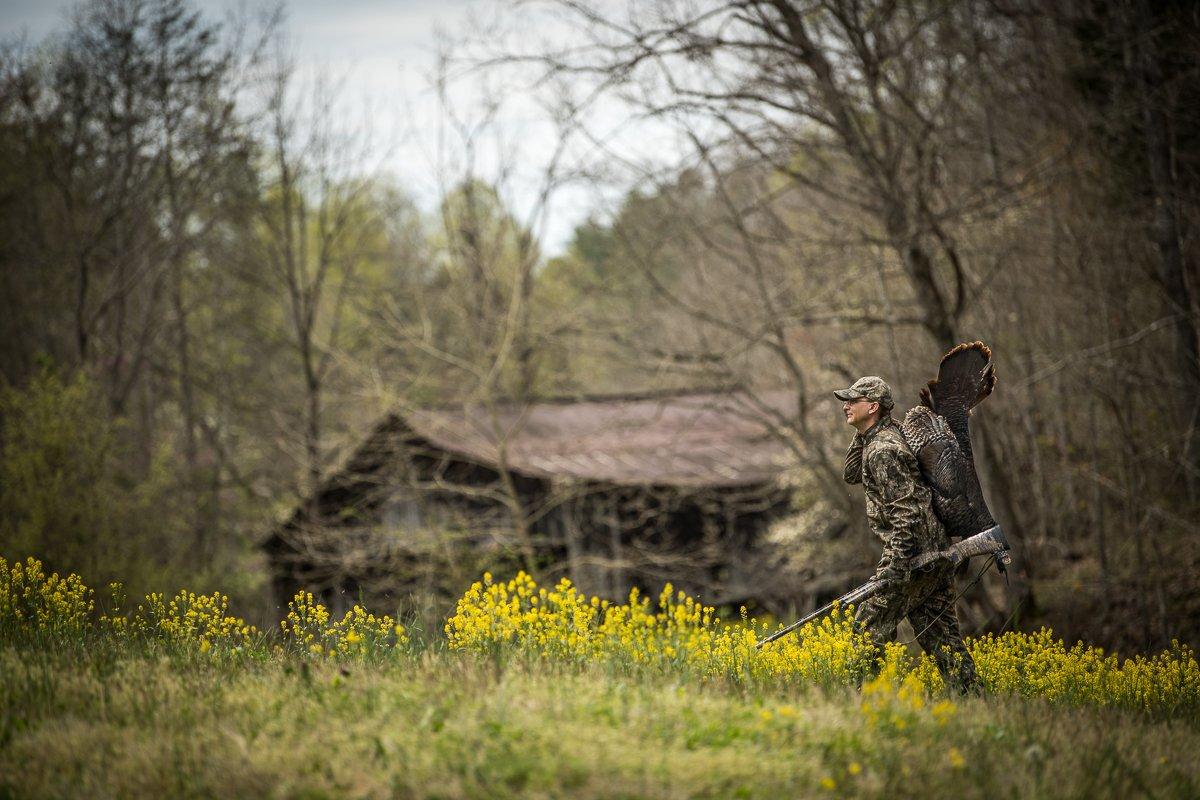If you only had a few days of season to hunt, when would they be? Four experts weigh in
I've turkey hunted in snow so heavy that I couldn't see the decoy just 15 yards in front of me. I've also hunted in 90-degree heat while wading through thick, green vegetation that limited my visibility almost as much as the snow. Both of those happened in my home state of Kentucky.
If you have chased turkeys long enough, you have probably experienced similar conditions. So which is better? Are longbeards easier to call in during the early or late portion of a state's season?
To answer that question, let's look at some basic turkey biology. Most state seasons come in early. Maybe too early for the best interest of overall turkey population numbers. That means that turkeys are often still in large winter flocks. Most hens haven't been bred and very few have initiated nesting actions. Weather conditions are generally cool or even cold. Vegetation hasn't fully emerged and is pretty sparse.
(Don't Miss: Are Turkey Seasons Opening Too Soon?)
In states with seasons stretching three weeks or longer, late season can see thick vegetation, warmer temperatures, and the bulk of the hens bred and fully invested in sitting on a nest and hatching a clutch of poults.
There's no doubt that turkeys can be called in and killed under either of these conditions, but which offers the hunter the best shot at a successful hunt? I posed that question to both experienced turkey hunters and wild turkey biologists. Their answers may surprise you.
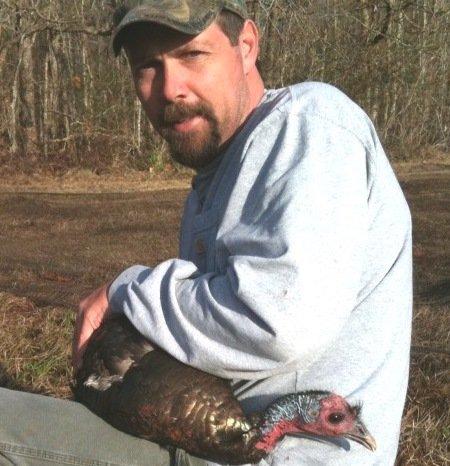 Michael J. Chamberlain, Ph.D.
Michael J. Chamberlain, Ph.D.
Turkey Biologist, University of Georgia
Noted wild turkey biologist Mike Chamberlain knows turkeys, both from a research perspective and a hunter's point of view. His extremely popular Turkey Tuesday segment on Facebook, shared by the National Wild Turkey Federation and many others, gives hunters an insight into the biology behind the bird we love.
Gobbling activity and responsiveness to hunters boils down to photoperiod and how it influences hormone levels, individual variation amongst birds in their behaviors, and the timing of the laying and incubation sequences. We know that gobbling activity ramps up several weeks before hens are receptive to breeding, which is usually early in our seasons. But we also see that gobbling is positively affected by the onset of laying and incubation, in other words, toms become more vocal and receptive when hens start laying and sitting on nests, because competition then becomes fierce to breed with the hens that are still available, Chamberlain says.
While acknowledging that some male turkeys might gobble less due to hunting pressure, Chamberlain says he feels that mature birds may be slightly easier to call in later in the season. I personally have seen that mature birds are easier to call in when there's competition to breed with the remaining hens, such as during laying and incubation periods. Gobbling intensity may not be as high as during other times of the season, but toms are responsive if you can catch their attention.
Pro Tip:
If I had to choose a three- to four-day window to hunt, I would request data from the state as to when peaks in laying and incubation are, and time my hunt then, Chamberlain says. Yes, this is often later in the seasons in many states, but in some states the season is timed to coincide with these periods and even open around these periods. Some birds will already have been killed by this time, but the remaining birds are, in my experience, responsive.
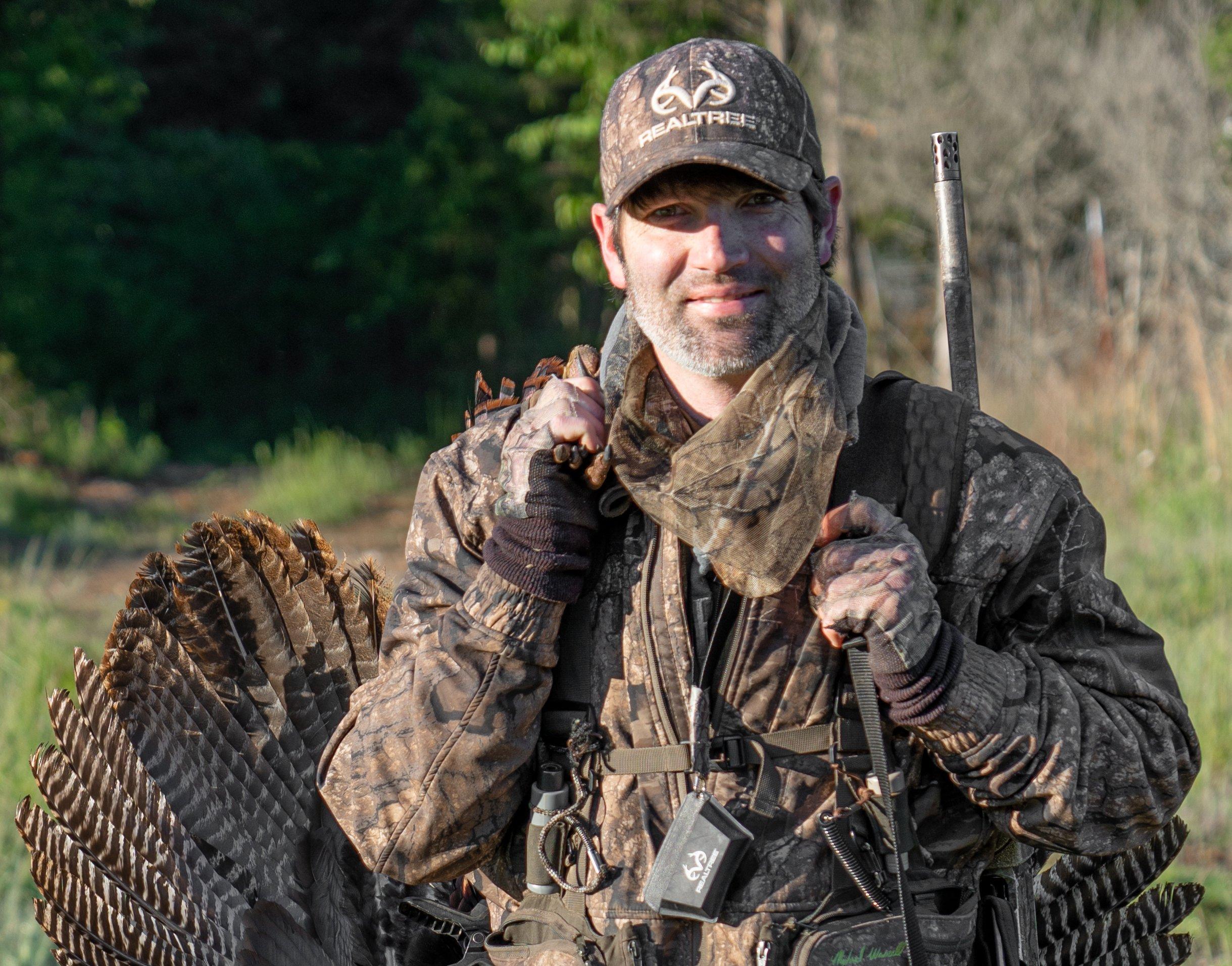 Phillip Culpepper
Phillip Culpepper
Host of Hunt Club TV with Phillip Culpepper, Turkey Hunting Nut
From early March through late May, Culpepper is out chasing longbeards somewhere across the country. He hunts more than just about anyone I know. For him, the entire season is good, but tactics have to change as the season progresses.
For me personally, I have called in and killed older turkeys later in the year when they seem to be off the hens. Typically, earlier in the season when turkeys are henned up is when I've had better luck with 'satellite birds,' or turkeys that don't have the hens. A 2-year-old or a 5-year-old, I'm happy with either, Culpepper says.
(Don't Miss: How to Hunt a Turkey that Won't Gobble)
If I had to pick a three- to four-day stretch, a lot of it would depend on where I am hunting, he adds. It is hard not to pick early in the year because that's when turkeys haven't been pressured, but also, depending where you're at in the country, it could make for a cold hunt. I'd have to say starting down south early is typically always good, while the farther north you go, later is better.
Culpepper thinks hens, more than hunting pressure, control gobbling activity as season progresses. Personally, I think hens have more control on 'making a turkey not gobble' than human pressure. When a turkey is henned up, he has everything he needs and what he's looking for. Hands down, that's the toughest obstacle to overcome in the turkey woods. There are a lot of people that will disagree with me, but I don't think a turkey can put two and two together to say to himself, 'That's a hunter calling to me.' I do think each turkey is different personality-wise, some are introverts, and some are life of the party, just like people. I've waged war against a particular bird that I'm convinced wants nothing to do with any other turkey. That is where it becomes a mental and strategical game of figuring out where he wants to be and where he wants to go. The turkey that doesn't like anybody or any turkey is probably the toughest turkey to kill.
Pro Tip:
Pay attention to what did, and most importantly, what didn't work as your season goes on. The biggest failure for a turkey hunter is not accepting defeat and learning from it. If you will recognize and break down how that turkey beat you and then grow from it as a hunter, you will be a better turkey hunter the next time you go to the woods, says Culpepper.
 Mark Hatfield
Mark Hatfield
Director of Conservation, National Wild Turkey Federation
Like Chamberlain, Mark Hatfield says if he were forced to choose a short three- to four-day window to give him the best shot at killing a mature turkey, it would probably be later in the season for most states.
Personally, I like late-season hunting, Hatfield says. Here in South Carolina, for instance, average peak nest initiation occurs around April 7 to 10. That means most of the hens will be bred and will start laying their eggs. That makes competition to breed those remaining hens high, and makes mature gobblers more likely to work hard for a chance at what they think is a non-bred hen calling to them.
Hatfield says the early season can be tough. Birds are typically still in large flocks in many areas. Those male turkeys have worked out their pecking order, and the most mature birds have their hens. Why would they leave those visible hens that haven't been bred to come check out a single hen they can't see? he says. You might be able to pull away some young gobblers early on, but to get those mature birds, you almost have to get close enough to challenge their dominance and make them think you are another mature gobbler or challenge the boss hen.
Later seasons are just more enjoyable for me, he says. Hunting pressure around here is usually down a bit, gobblers are actively searching out and competing for any remaining hens they might breed, and they seem more likely to come in hard, displaying and gobbling the way I enjoy working birds to do.
And later seasons might be better for the turkeys, too. In some southern states, for example, spring turkey seasons start prior to the bulk of nest initiation and could be influencing nesting, Hatfield says. States must continue to look for ways to expand on hunting opportunities, but perhaps the overall health of the flock might be better served by adding those days to the end of the season rather than the beginning.
While Hatfield prefers later in the season, he cautions not to go too late. I have hunted late May before where I felt like the season was winding down. Testosterone levels in mature birds probably had started to drop; gobbling was curtailed, he says. Hatfield agrees with Chamberlain that the best hunting in any area happens when most of the hens have begun nesting activity.
Pro Tip:
As the season progresses, I like to get less aggressive with my calling. I'll reduce the frequency and tone of my calling, trying to sound more like a lone hen out by herself, Hatfield says. I'll also spend more time hunting midday during the late season to catch mature birds that were henned up earlier in the day, but suddenly find themselves alone once their hens go on nest.
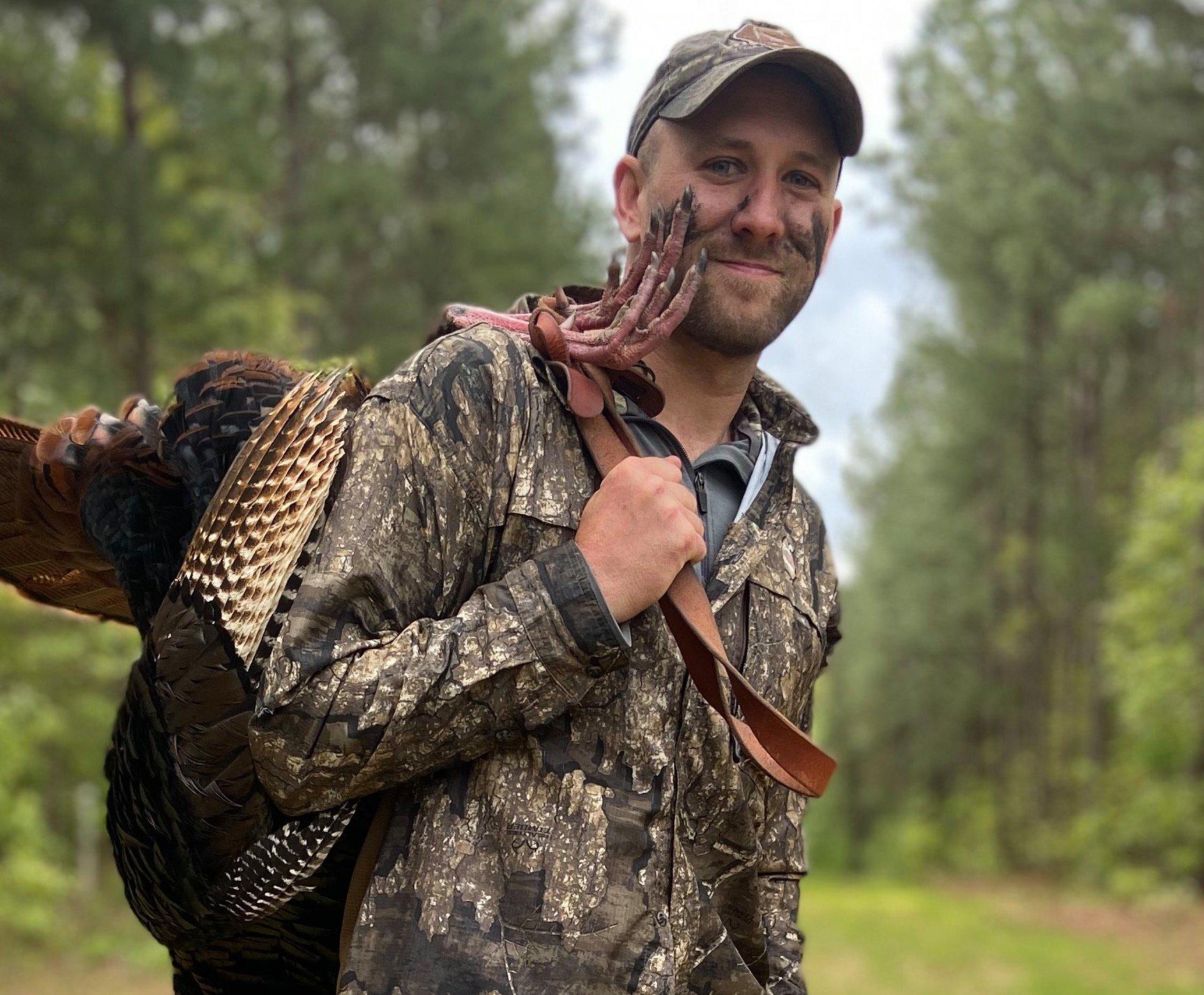 Will Brantley
Will Brantley
Outdoor Writer, Realtree.com Editor, Turkey Nut
Like Culpepper, Brantley has spent his life chasing longbeards just about everywhere on the planet they exist. He's hunted everything from whiteout blizzards to true jungle conditions. He says it all depends on what you are looking for in a hunt.
If your goal is simply to kill a turkey, he's easier to kill in the early season, if you're willing to adjust your tactics, Brantley says. But I think calling in a gobbler in classic fashion — where you yelp like a hen and he comes looking — is actually easier in the late season. Early season, there are more turkeys in the woods, and their frame of mind makes challenging them with gobbler decoys and tactics like fanning especially effective.
If he were to pick a three- or four-day stretch with the best chances to kill a bird, Brantley says, it all depends on where he is hunting. If you have private land with open hayfields, crop fields, and food plots, and aren't opposed to using decoys, ambushes, and fanning, I'd definitely say the first week, when strutters are most visible, he says. If you're hunting big-woods public land and relying on more traditional tactics, I'd take the last week.
Reduced hunting pressure is a big factor when it comes to late-season birds. There are a fraction of the guys in the woods during the last week, compared to the first week, Brantley notes. I've heard better gobbling, especially midday, during the late season the past several years in a row. More foliage makes it easier to move on birds in the woods, but harder to kill them in fields. They seem to generally stop using fields when the grass gets over 8 inches tall. If they aren't gobbling, late-season turkeys are tough, on par with elk in the timber that won't bugle.
Brantley doesn't put much stock in call-shy late-season birds. Ever heard a horrible box call or slate on the next ridge? If you can pick out the difference, turkeys can too. But if your calling is realistic, and more importantly, you can get in a bird's bubble, I don't think they get shy of real turkey sounds. They might respond silently, or drum more than gobble — but they'll come in, he says.
Pro Tip:
Change your tactics to match the time of season you hunt. I like to be more stationary in the early season, and rely on good decoys and diligent scouting to help me tag birds that I've been patterning ahead of the season, says Brantley. Late season, I cover more ground. I'm not necessarily trying to 'strike' a bird with locator calls so much as stumble onto one that's gobbling on his own. That's when public-land hunting, where there's room to move, can actually be better than private. It requires persistence. You won't get on a turkey every day, but if you keep moving and spending time in areas where you know turkeys live, the odds will eventually work in your favor. Find a turkey in early May that's gobbling his head off on a ridge at nine in the morning, and he's probably not long for this world.
So Which is It?
So when is the best time of the season to turkey hunt? Dr. Chamberlain answered that question the best with his response: Any day I'm lucky enough to wake up and have the opportunity to hunt!
I couldn't agree more. Like most hunters, I try to get out any time work and family allow, regardless of the time of season. Will I hunt the same way on the first day as I do on the last? Nope. I'll adjust my tactics to fit what the turkeys in my area are doing on the day I'm hunting. And, if my game plan goes bust, like it often does, I'll try something different the next time I'm out. There's no better teacher in the turkey woods than a wily old longbeard who just kicked your butt and lived to gobble about it.
(Get the Scoop on Turkey Hunting Every State: Realtree Turkey Hunting Nation)

